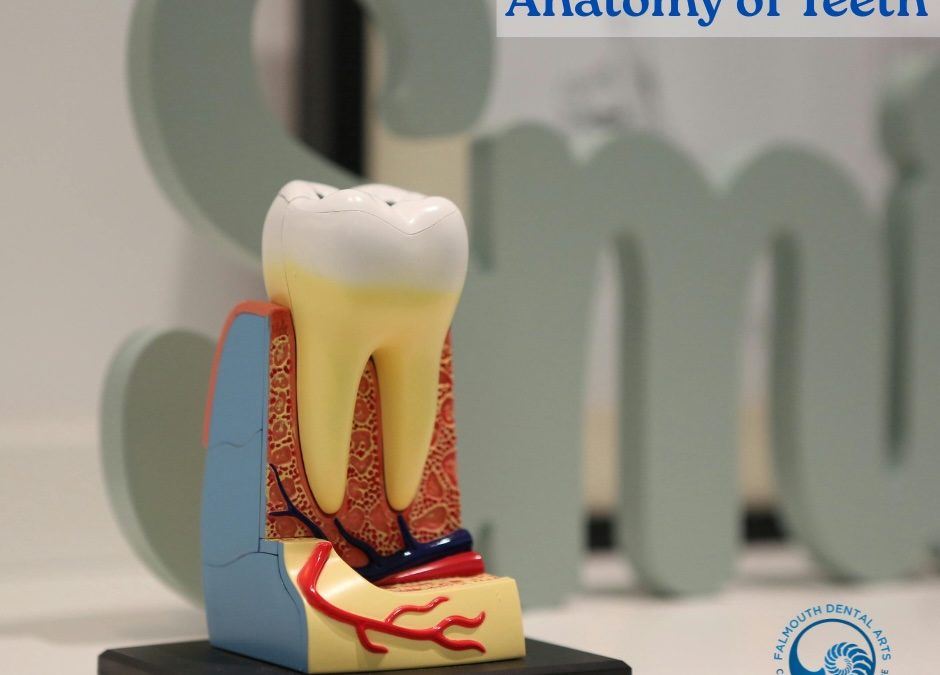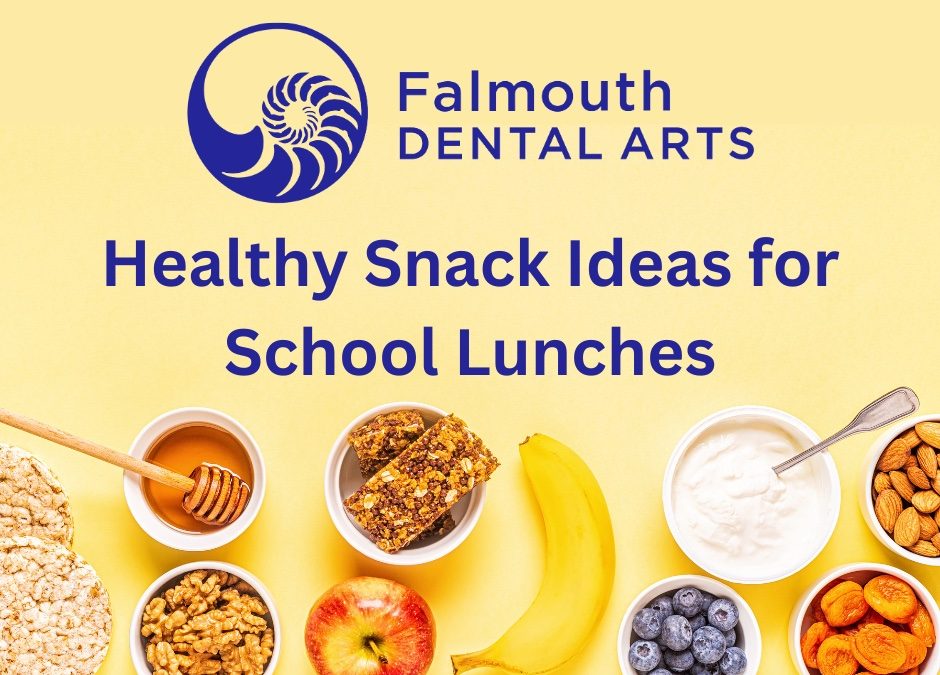
Aug 26, 2025
It’s back-to-school season! While kids are getting ready with fresh notebooks and new routines, it’s also the perfect time to brush up on the basics of oral health—starting with what’s inside your smile. Understanding the different parts of your teeth can help you take better care of them. So let’s go back to basics with a refresher on the anatomy of your teeth!
What Are Teeth Made Of?
Your teeth are small, but they’re made of several layers that each have an important job. Here’s an explanation of each layer and how they work together.
Enamel
This is the hard, shiny outer layer of your tooth—and it’s the strongest substance in your body! Enamel protects your teeth from chewing, biting, and bacteria. But it can wear down over time, especially if you eat a lot of sugar or skip brushing.
Dentin
Right underneath the enamel is dentin. It’s not as hard, and it’s a little yellowish in color. If enamel wears away, dentin can become exposed—and that can make your teeth feel sensitive.
Pulp
The pulp is in the center of the tooth. It’s soft and full of nerves and blood vessels. The pulp helps your tooth grow and stay healthy. If a tooth gets a deep cavity or crack, the pulp can get infected and may need treatment.
Cementum
This covers the root of the tooth and helps hold it in place. It’s not something you can see, but it works hard below the surface!
Periodontal Ligament
This is the stretchy tissue that connects your teeth to your jawbone. It acts like a cushion every time you bite or chew.
Why This Matters
Just like knowing how your heart or lungs work, understanding your teeth helps you keep them strong. When you brush and floss every day, you’re protecting all those layers—especially your enamel and gums. And remember: your permanent teeth need to last your whole life. The better you care for them now, the happier your smile will be in the future!
Back to School = Back to the Dentist!
The start of the school year is a great time to schedule a check-up. At Falmouth Dental Arts, we make visits easy and comfortable for the whole family. Whether your child is starting kindergarten or heading into high school, we’re here to keep their smiles healthy, strong, and ready to shine in school photos.

Jul 30, 2025
Backpacks are packed, fall sports are in full swing, and for many kids and teens in Southern Maine, that means time on the field, court, rink, or at a park. At Falmouth Dental Arts, we love cheering on our young athletes—but we also want to make sure their smiles stay safe all season long.
Whether your child plays soccer, football, hockey, or even skateboards with friends after school, protecting their teeth is just as important as wearing a helmet or pads. Here’s how to keep those pearly whites game-ready.
Why Mouthguards Matter
Mouthguards are a simple and effective way to prevent dental injuries during sports. They help protect teeth, gums, lips, and even the jaw from impact.
Here’s what a good mouthguard can do:
- Cushion the blow from a fall or collision
- Protect against chipped, broken, or knocked-out teeth
- Reduce the risk of cuts to lips and tongue
- Even help prevent jaw injuries and concussions
A well-fitting mouthguard should feel snug but comfortable, and allow for easy breathing and talking.
Custom-fit is best:
At Falmouth Dental Arts, we offer custom-fitted mouthguards made right in our office. These are specially designed for your child’s mouth, offering better protection, comfort, and durability than over-the-counter versions. If your student athlete needs one, just let us know—we’re happy to help!
What If a Tooth Gets Cracked or Knocked Out?
Even with the best protection, accidents can still happen. Here’s what to do if your child has a dental injury during sports:
If a tooth is chipped or cracked:
- Rinse the mouth gently with warm water
- Save any tooth fragments (if you can)
- Call our office as soon as possible—early care makes a big difference
If a tooth is knocked out:
- Hold the tooth by the crown (not the root)
- Gently rinse it off—don’t scrub
- Try to place it back in the socket, or keep it in a glass of milk
- Get to the dentist within 30 minutes if possible
Don’t panic—we’re here to help. Dental emergencies can feel overwhelming, but our caring team is just a phone call away. We’ll guide you through every step to protect your child’s smile.
Safe Smiles Start Here
At Falmouth Dental Arts, we believe every child deserves a confident, healthy smile—on and off the field. Whether you’re looking for a custom mouthguard or need quick help after an injury, we’re always here to support your family with trusted, compassionate care.

Sep 1, 2023
Sharpen your pencils – September means it’s time to go back to school! But what are you going to pack in your kiddo’s lunch box? At FDA, we’ve long shared how eating a healthy diet is an important part of your oral health regimen, and including healthy snacks in your child’s lunch is a great way to support their smile and their overall health. So, skip those starchy and sweet snacks and choose foods that are good for your kids’ teeth and body! Here are our top 5 healthy snack ideas for school lunches.
Apples
They say apples are nature’s toothbrush and we agree! Packed with vitamins and antioxidants, an apple a day is a great way to keep your kids healthy. Since apples are so crunchy, they stimulate the gums and encourage saliva production which helps wash away harmful bacteria. We’re lucky to live in Maine where there are oodles of apple varieties. An apple a day will help fight tooth decay!
Almonds
Almonds and other nuts are full of health benefits. High in vitamin E, healthy fats, and tooth-strengthening calcium, almonds are a perfect snack to pack. Watch out for almonds coated in honey or sugar which can stick to the teeth and contribute to cavities. If your child has sensitive teeth, try almond slivers rather than whole almonds.
Cheese
We love cheese! It’s high in calcium and a protein called casein which helps strengthen tooth enamel. Add to that cheese has phosphate which is pH-balancing for your mouth, protecting your teeth further. The only problem with cheese is deciding which variety is your favorite…cheddar? Gouda? Mozzarella string cheese? All of the above?
Celery
Crunchy vegetables are good for your body and good for your teeth and celery is a real rock star! First, they are full of almost a whole alphabet’s worth of vitamins, particularly vitamin A, C, and K. Also, all that chewing required to chomp a celery stalk cleans your teeth naturally and promotes saliva production to flush away bacteria. The fibrous texture of celery is great for your gums, too, making celery the closest thing to a vegetable dental floss. What’s not to love?!
Yogurt
Like its cousin, cheese, yogurt is full of calcium that helps strengthen your bones and teeth. Maintaining bone density is particularly important for growing kids. The probiotics in yogurt also help support oral health, helping to slow the growth of cavity-causing bacteria. Be careful with some of the fruit-filled yogurts as they can have a surprising amount of added sugar. We like greek yogurt, which has the highest levels of protein…an extra boost to your kids’ health!
Add these items to your grocery list and you’ll be ready to pack your kids’ lunch full of healthy snacks! Also, don’t forget to also pack a reusable water bottle! It will not only help your child stay hydrated, but have the added bonus of rinsing their mouth of harmful bacteria. Eating a healthy diet is just one part of an A + oral health routine. Keep your kids brushing twice a day and flossing once a day.
If they’re due for a checkup with Dr. Brunacini or Dr. Karagiorgos, or need a cleaning with one of our amazing hygienists, please give us a call today – 207.781.5900. We look forward to seeing you!



